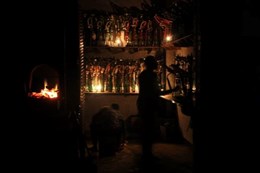Tuesday, 24/02/2026 | 19:43 GMT+7

Capacity training program for local government officials in the field of energy efficiency and conservation under the framework of the VSUEE Project held in Da Nang from October 29-31, 2025
 Strengthening Sales and Marketing Capacity for Energy Efficiency Equipment and Solution Suppliers
Strengthening Sales and Marketing Capacity for Energy Efficiency Equipment and Solution Suppliers
 Capacity building for participating financial institutions in Ho Chi Minh City
Capacity building for participating financial institutions in Ho Chi Minh City
 Strengthening capacity for energy management officers of local government agencies
Strengthening capacity for energy management officers of local government agencies
 Vietnamese enterprises achieve green growth and cut costs through energy efficiency
Vietnamese enterprises achieve green growth and cut costs through energy efficiency
 Webinar 2: “Financial Support for Energy Efficiency Enterprises – Opportunities and Challenges”
Webinar 2: “Financial Support for Energy Efficiency Enterprises – Opportunities and Challenges”


























 Consultation on the methodology for developing and updating energy consumption standards for four major industrial sectors
Consultation on the methodology for developing and updating energy consumption standards for four major industrial sectors
 Opening of the 2025 Energy-Efficient Equipment and Green Transition Exhibition Fair
Opening of the 2025 Energy-Efficient Equipment and Green Transition Exhibition Fair
 Energy-saving solutions and green transition promotion
Energy-saving solutions and green transition promotion
 The 9th VEPG Steering Committee Meeting: Strengthening Coordination for Viet Nam’s Just Energy Transition
The 9th VEPG Steering Committee Meeting: Strengthening Coordination for Viet Nam’s Just Energy Transition